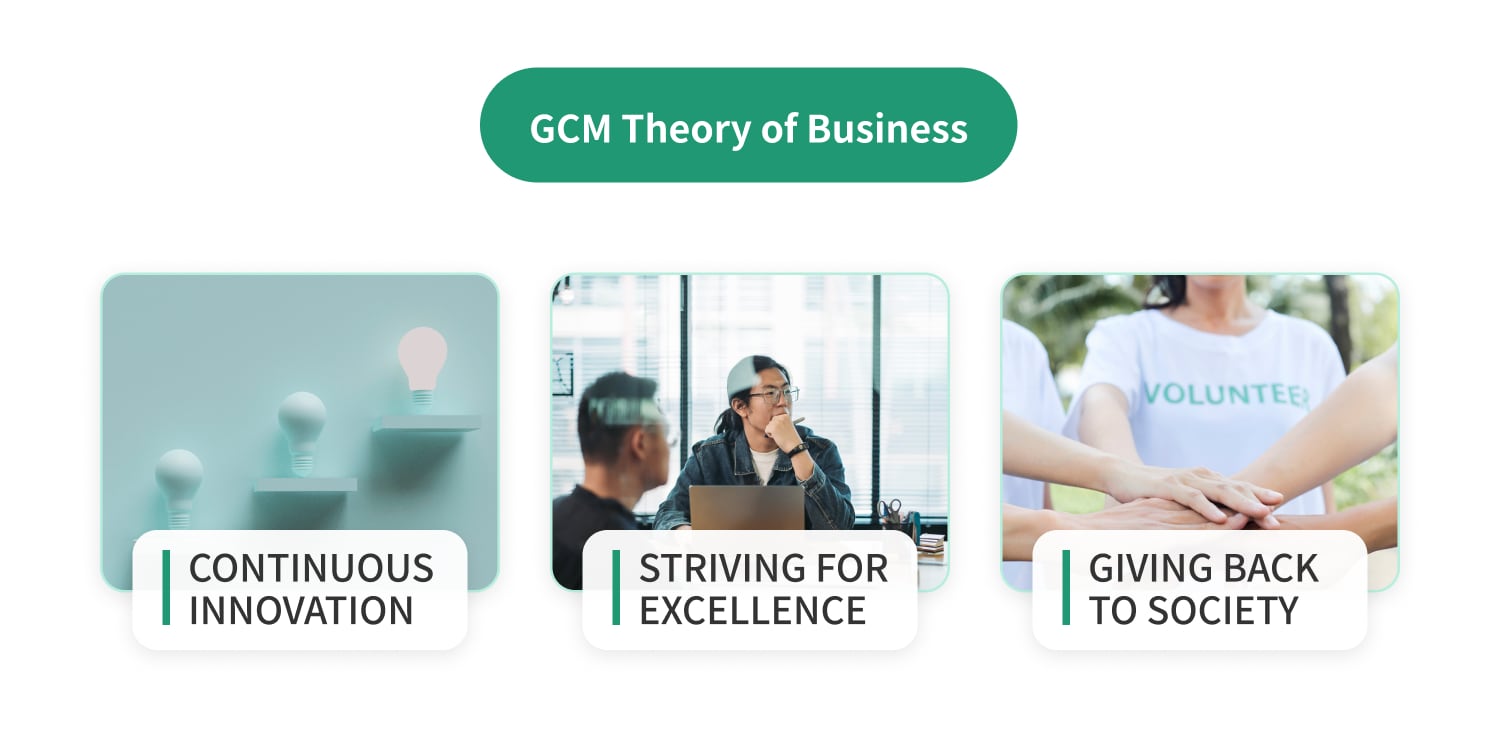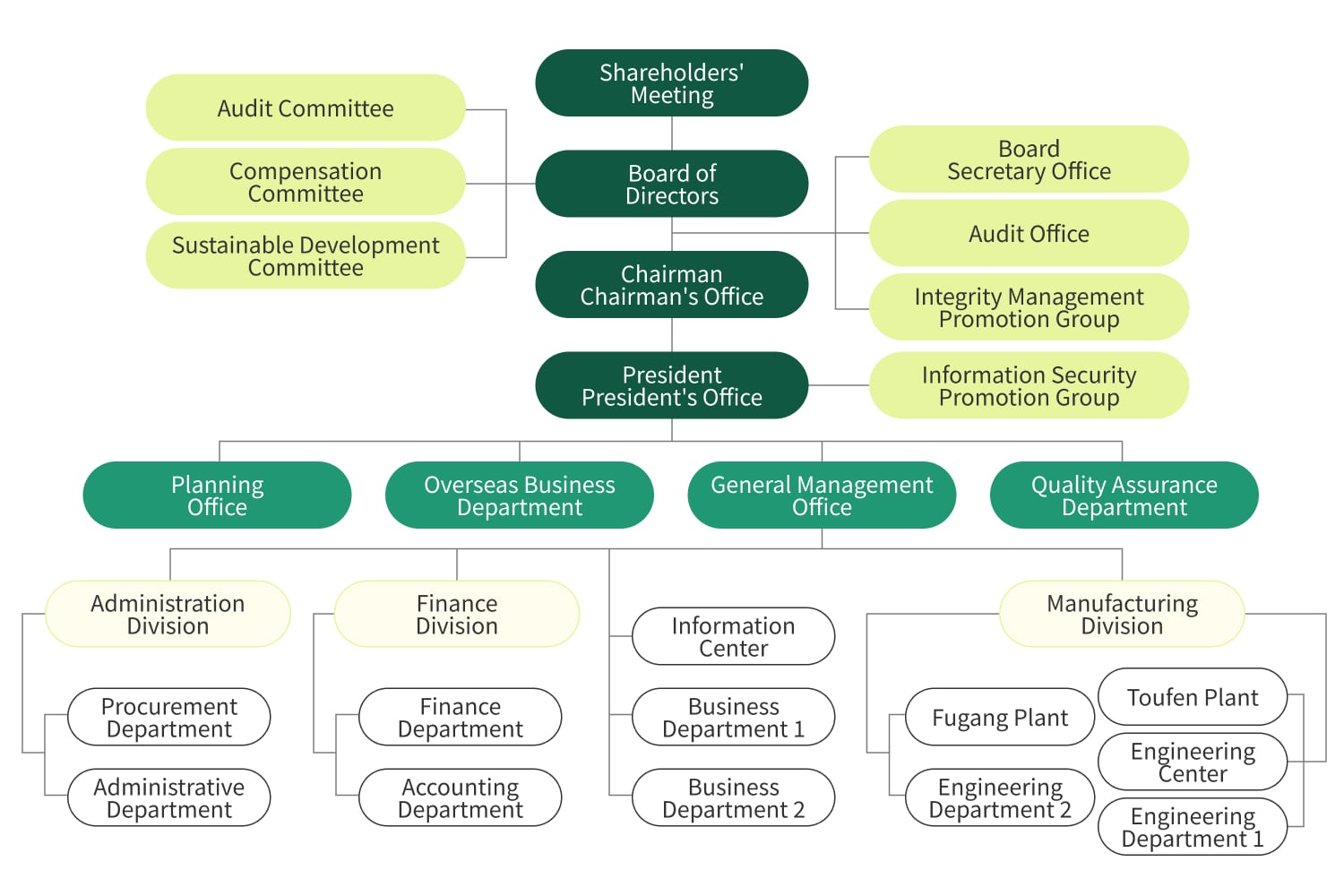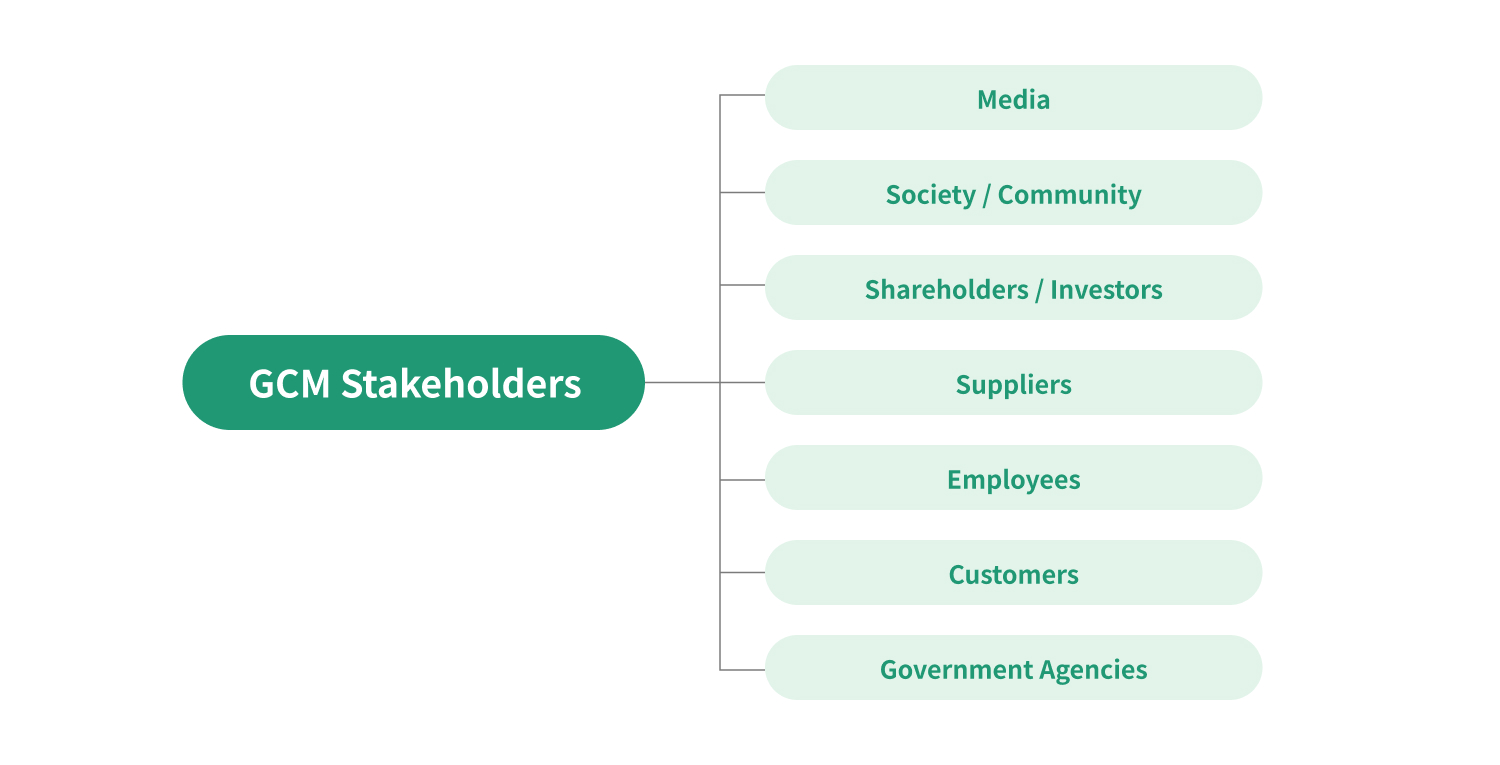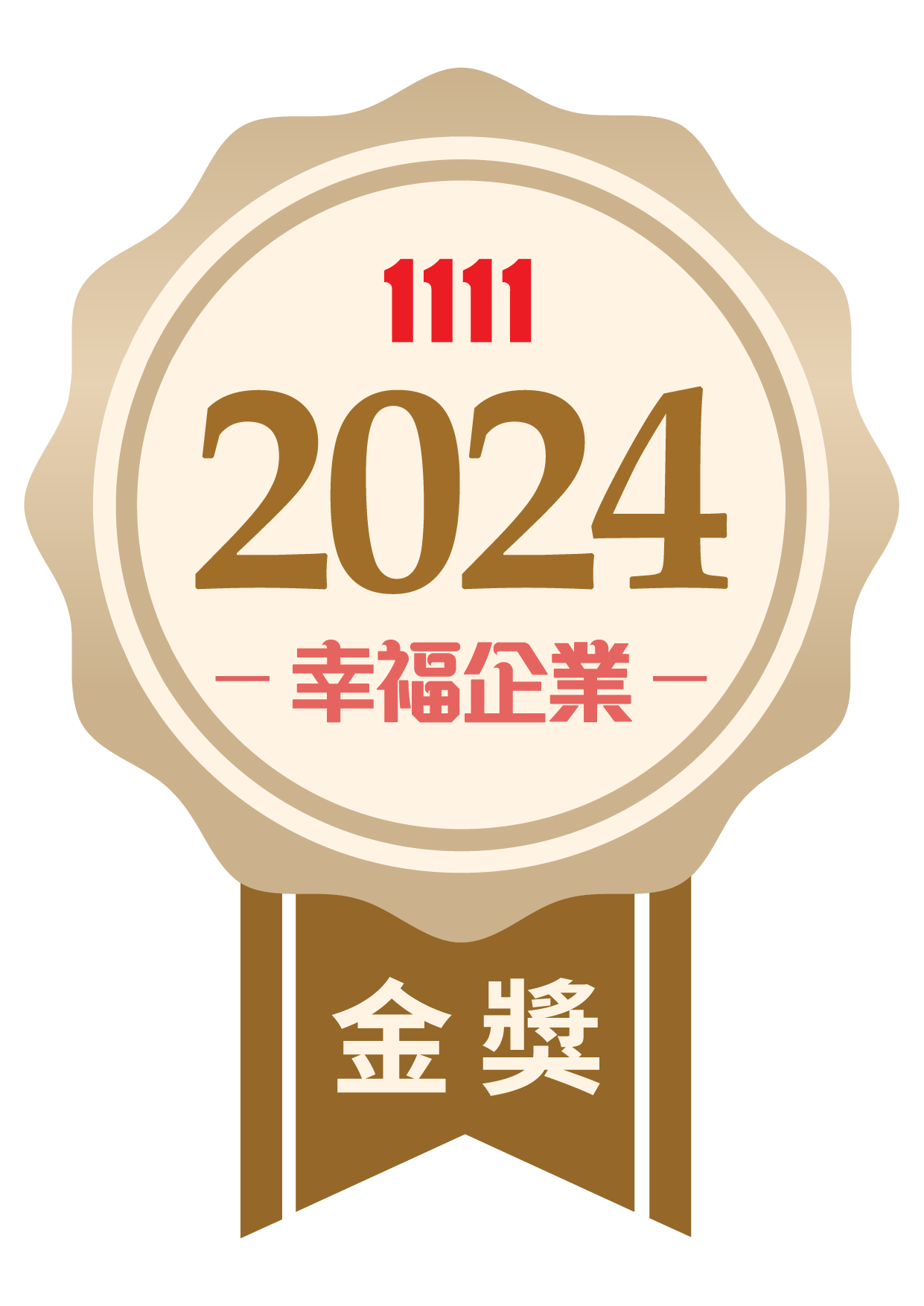Sustainable Promotion
Sustainable Promotion
Company Profile
stakeholders
Identification of Key Issues
Since its founding in 1973, GCM has become a comprehensive manufacturer of food and beverage packaging containers in Taiwan, renowned for its outstanding reputation and technological leadership.
With a quality management policy of “Total Participation, Quality First, Sustainable Pursuit, and Excellence” and a business philosophy of “Continuous Innovation, Pursuing Excellence, and Giving Back to Society” GCM has introduced professional production equipment to manufacture and sell various types of metal can packaging. These include aluminum cans, coated aluminum cans, three-piece steel cans, Drawn and Redrawn (DRD) cans, decorative cans, as well as aluminum and steel full-open ends, easy-open beverage ends, and plastic stretch film products.
GCM has invested in and established a total of eight plants in Taiwan, Shanghai, Nantong, Chongqing, Jinan, Foshan in Mainland China, and Vietnam. The company provides high-quality products and services to well-known domestic and international clients across the food, beverage, electronics, and packaging industries.

GCM views sound corporate governance as the cornerstone of sustainable development. A robust governance framework not only enhances operational efficiency and protects shareholder rights but also fosters mutual trust and creates value with stakeholders.
The Board of Directors, as the core of governance, adheres to the principles of integrity and transparency, committed to safeguarding the rights of all stakeholders. We encourage shareholders to actively participate in governance and listen to their voices through various communication channels, strengthening relationships further.
The company will continue to optimize its governance structure to ensure operations comply with regulations. By collaborating with management and independent directors to understand shareholder opinions and concerns, we aim to enhance overall competitiveness.
Organizational Chart

Stakeholder Identification and Engagement
GCM has implemented a stakeholder engagement mechanism to gain deeper insights into the impact of various stakeholders on the company and to identify their key concerns. This engagement process strictly follows the AA1000 Stakeholder Engagement Standard, evaluating stakeholders based on five key indicators: Dependence, Responsibility, Closeness, Influence, and Communication Frequency. By integrating the results of stakeholder surveys, we quantify the relative importance of each stakeholder group.
Through a comprehensive assessment, GCM has identified its primary stakeholders as customers, employees, suppliers, government agencies, shareholders/investors, society/communities, and the media. This engagement has allowed us to better understand stakeholders’ expectations and needs, enabling us to develop more targeted corporate social responsibility (CSR) strategies. By fostering stronger stakeholder relationships, we aim to enhance corporate sustainability and long-term growth.

Confirming Key Sustainability Issues
To accurately assess the impact of various sustainability issues on stakeholders and company operations, we have developed a Key Issues Matrix. This matrix evaluates each issue based on stakeholder ratings, internal company assessments, and external expert opinions, providing a comprehensive materiality assessment.
Through rigorous analysis and prioritization, we have identified seven key sustainability issues that require priority attention.
To ensure transparency and traceability in our sustainability development, we have established and disclosed management policies for each key issue in accordance with the GRI Sustainability Reporting Standards. By continuously monitoring and improving these issues, we are committed to enhancing the company’s economic, environmental, and social performance.
| Governance | Environment | Social | |
|---|---|---|---|
| Key Issues | Product Quality and Safety | Air Pollution Management | Talent Attraction and Retention |
| Business Continuity Management | Water Resource Management | Talent Development and Training | |
| Waste Management and Recycling | |||
| Sustainability Topics | Economic Performance | Climate Change | Occupational Health and Safety |
| Supplier Management | Energy Management | Customer Service | |
| Regulatory Compliance | Social Participation | ||
| Innovation Management and R&D | Diversity, Society, and Human Rights | ||
| Corporate Governance | |||
| Risk Management | |||
| Information Security and Privacy Protection |

